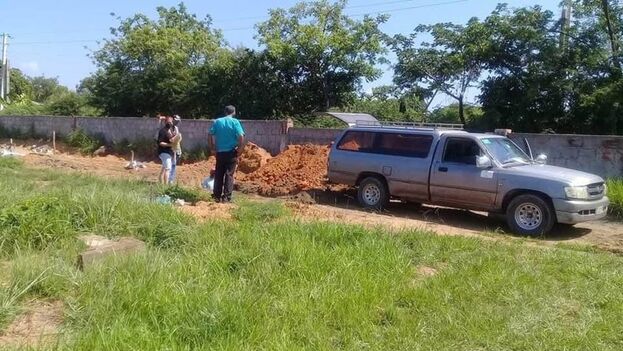
![]() 14ymedio, Yoani Sanchéz, Generation Y, 23 December 2021 — The Fundación del Español Urgente (Foundation of Emerging Spanish — Fundéu) has already published its twelve candidates to compete for 2021’s scepter of the word. The competition is tough because this year has elicited deep emotions in millions of people who speak this beautiful language and because for twelve months the social debate has ignited around words that define scientific findings, political conflicts and economic hardships. The selection could leave a trail of dissatisfaction among Spanish speakers, a plural chorus that extends beyond the twenty nations that have Castilian as their official language.
14ymedio, Yoani Sanchéz, Generation Y, 23 December 2021 — The Fundación del Español Urgente (Foundation of Emerging Spanish — Fundéu) has already published its twelve candidates to compete for 2021’s scepter of the word. The competition is tough because this year has elicited deep emotions in millions of people who speak this beautiful language and because for twelve months the social debate has ignited around words that define scientific findings, political conflicts and economic hardships. The selection could leave a trail of dissatisfaction among Spanish speakers, a plural chorus that extends beyond the twenty nations that have Castilian as their official language.
Vaccine, cryptocurrency, shortage, variant, metaverse and Taliban are among the terms in dispute for the crown that the Fundéu has awarded since 2013. However, although all of them have been written, disseminated and spoken countless times, I consider that it has been the act of saying goodbye – mentally and physically – that we have had to perform the most in this very tough year that is ending. The expression “adiós” has marked much of our days, redefined our path and forced us to rethink the priorities of our existence.
We said “adiós” to the thousands of deaths that the second and third waves of the pandemic brought us, when we had believed that the worst was over. We also appealed to that interjection when we understood that the way we had experienced social contact, interaction with others and professional life was no longer going to return, we had to construct other ways. We had to use that sharp word again when we realized that the pandemic was not something fleeting but the new state in which we would live for a long time. This year we said “adiós” at every step.
But every time we shake our hands or our heads to close a chapter or to say goodbye to a deceased, we also said “hello” or “welcome,” because 2021 forced us to wake up every morning and give thanks that our lungs were still working, to jump like children before the negative result of an antigen test, to hug each other only with the tip of the elbow and still feel as if it had been with the whole body, to put away our bathing suits because the beaches were closed and later to not hang the garlands because Christmas could not be celebrated either. It led us to sweep away the superfluous and keep the essentials.
After having survived all of this, we get a half smile on remembering that in 2014 Fundéu selected the word “selfie,” so narcissistic and carefree; or that in 2019 it was the turn of the cute “emojis.” The tongue then carried a distant and festive unconcern because, of course, we did not know what was on its way to us with the coronavirus pandemic.
On December 29, the foundation promoted by the EFE Agency and the Royal Spanish Academy will announce the word of this year, but many of us already know it. It is the two short syllables that we have repeated all this time: adiós.
________________________
This text was originally published on the Deutsche Welle website for Latin America.
____________
COLLABORATE WITH OUR WORK: The 14ymedio team is committed to practicing serious journalism that reflects Cuba’s reality in all its depth. Thank you for joining us on this long journey. We invite you to continue supporting us by becoming a member of 14ymedio now. Together we can continue transforming journalism in Cuba.
